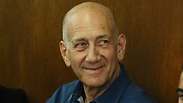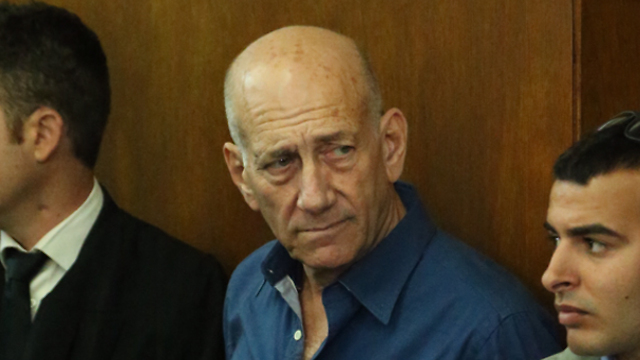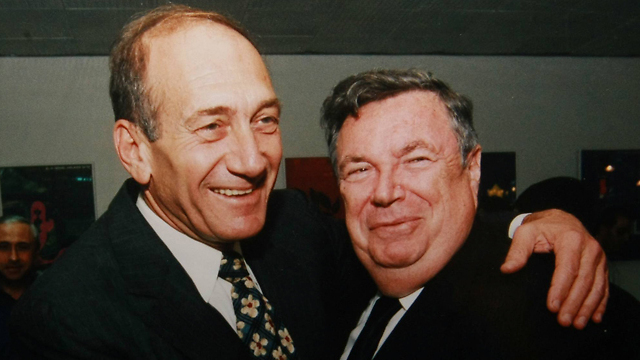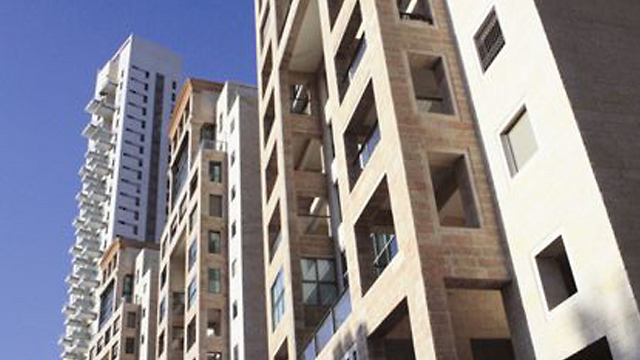
Olmert on Holyland: I thought project was important, exciting
Former Prime Minister Ehud Olmert denies accepting bribes for promotion of Holyland project during court testimony. ‘We really wanted to develop city, from first moment, I thought project was of importance,' Olmert says
During Sunday’s hearing on alleged corruption in the Jerusalem luxury project, Olmert said, "We really wanted to develop Jerusalem. The project was presented to me by family members in a manner that was very exciting. I said what I always say to developers, 'You build, we will try to help.’”
Related stories:
- Appeal on Olmert acquittal to 'correct message to public'
- Olmert exonerated of corruption charges
- Witness: Holyland wouldn't have happened without Olmert
Olmert also said in his testimony, "I liked the fact that in 1994, six years before the millennium, new hotels would be built in Jerusalem. I thought that this project, which was largely untapped, was certainly an area worthy of construction and development, and I agreed with the other relevant people involved who believed that it was a project worthy of construction and that it should be developed in that location. The project and the mission of the entire thing seemed like the right thing at that time and I supported it.”
Regarding his relationship with the state’s witness now deceased Shmuel Dechner, Olmert said, "He was introduced to me as if he was the project manager. My relationship with him was as with other entrepreneurs. He was very stubborn about what he wanted and he was significant, my door was open to him. Every time I thought there should have been intervention, I acted as I said at the beginning – 'do not hesitate to contact us.'"
Ehud Olmert in court (Photo: Motti Kimchi)
The trial is currently at the height of defense testimony. To date, close to 100 witnesses for the prosecution and six defendants have been called. Dechner, who died in the middle of his testimony, did not live long enough to be questioned by all the defense’s attorneys, including those of Olmert, and those of his former bureau chief, Shula Zaken, who is also a defendant in the case.
This leaves in doubt the question of whether it is possible to judge guilt without cross-examination of the key witness. The verdict in this complex case with additional defendants is expected to be delivered in the first half of 2014.
Olmert and Dechner (Reproduction photo: Yariv Katz)
The Holyland affair was uncovered in 2010, following an investigation of the National Fraud Unit, which described it as one of most serious cases in Israel's history. The investigation – during which businessmen and public officials were arrested – examined transactions which took place over a decade, during the development of various projects for primary housing. Included in the construction developments under investigation was the Holyland building in southwest Jerusalem.
Jerusalem's Holyland project (Photo: Shlomi Cohen)
The indictment alleges that during this period, millions of shekels in bribes were passed on to senior officials and administrators, including Olmert, who served as mayor of Jerusalem. Almost two years later, an indictment was filed against Olmert for accepting bribes.
Olmert also awaits a decision by the Supreme Court regarding the state’s appeal of his acquittal from charges in the Rishon Tours affair and the “envelopes of money” belonging to Moshe Talansky. In early July, the Supreme Court discussed the state appeal of the verdict. The appeal was heard by a rare expanded panel of five judges, headed by Supreme Court President Asher Gronis.
- Receive Ynetnews updates directly to your desktop













